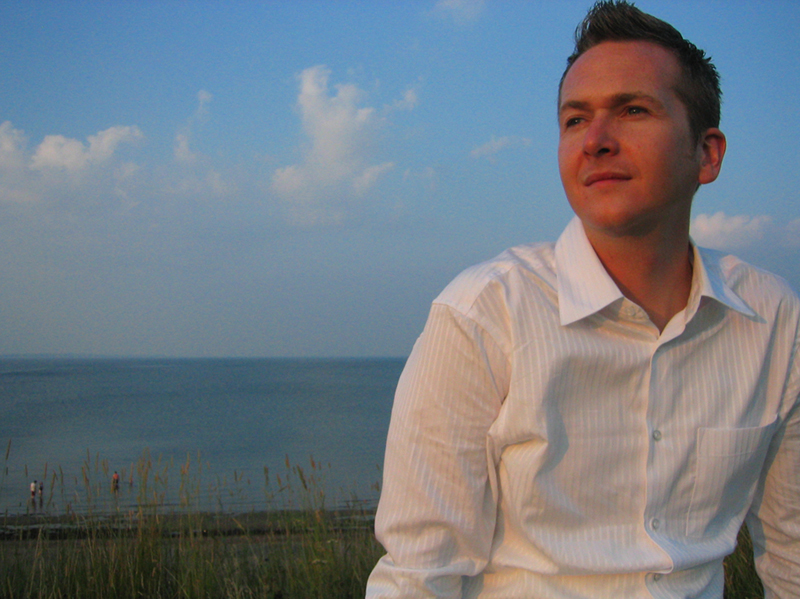TPAN (Test Positive Action Network) celebrates its 21st anniversary this year. To mark the occasion, it will honor 21 organizations and individuals “who have made outstanding contributions to TPAN and to the HIV/AIDS community,” according to its press release about the event, called “Aware Affair: Superheroes.” Among those named “superheroes” is Columbia College Chicago, for its “leadership and dedication.” Specifically, the institution is being recognized for its AIDS-focused theme during the initial year of the Critical Encounters learning initiative.

Critical Encounters (CE) is an annual campus-wide “learning initiative” that seeks to engage Columbia College faculty, students, and the larger Chicago community in a series of dialogues about a specific issue. In the academic year 2006-2007, that theme was AIDS, on both the global and local levels. One of the individuals who played a key role in developing the CE initiative and the theme is Lott Hill who, along with English professor Ames Hawkins, designed and coordinated the related public talks and events. Hill has just been named director of the Center for Teaching Excellence, and he was a member of the task force that got CE off the ground. He spoke to Windy City Times about the initiative’s goals and achievements, and also shed some light on what brought him to Columbia.
Initial interest in CE began, according to Hill, when TPAN partnered with one of the regular classes held on campus, Ad Agency, taught by Larry Minski in the Marketing and Communications Department. Part of Columbia’s mission statement, is to “educate students who will go on to shape public perception and who will author the culture of their times.” To that end, the class students and TPAN worked to create the “Power of One” campaign. But even after the class was over, TPAN found that students had become engaged participants in the drive to spread AIDS awareness. “While learning to function in their professional lives, they were also learning about HIV/AIDS and becoming peer educators.” said Hill.
The finding was a revelation to TPAN, which was especially interested in developing educational links with the student body because the highest number of infections exist in the same demographic. What followed was a series of discussions between TPAN and Columbia; the program began with the support of Provost Steven Kapelke.
In keeping with Columbia College’s emphasis on arts and the media, CE events that year included an exhibit of works by the Brazilian artist Adriana Bertini, who makes dresses out of condoms. They also included a dance performance by Peter Carpenter called Bareback Into the Sunset, and an exhibit titled Body Maps, about South African women with HIV/AIDS.
Hill emphasized that motivating students to think about how issues connect with their chosen professions is an important component of CE; they see “that even though they may be going into dance or writing or radio … their skills do have an impact on how the worlds works and … ultimately our future.” According to him, students have initiated their own projects on campus, related to CE themes, including a student awareness fair to which they invited AIDS service providers.
Hill knows what it means to think about one’s work in relation to the world around us. He began his own student career as a prospective major in Developmental Psychology at the University of Louisville, Kentucky. He soon realised that classes in his chosen major meant nothing to him, “I was bored out of my mind; nothing that I was learning meant anything. I burnt out pretty quickly.” Hill took two years off from school, first travelling in Europe on money he’d saved up during college jobs, and then living in California for six months.
He returned to Louisville, realised that he wanted to be a writer, and applied to Columbia College’s program in Creative Writing. Hill eventually got an MFA from Columbia in 2000, taking night classes while working full-time. One of his jobs was as the Director of the Writing Program at the Duncan YMCA Chernin Center for the Arts. He continues to write, having shifted from poetry to creative non-fiction, and presents his work at Second Story. Hill also serves as faculty advisor to Common Ground, the LGBTQIA student group at Columbia.
For Hill, the theme of HIV/AIDS is deeply connected to a range of issues around us, including that of Poverty and Privilege (the second-year theme of CE) and Human/Nature, the upcoming series. “I’ve lost my fair share of friends; I have my fair share of friends who’re [living with HIV]; I’ve witnessed too many people, young people, discovering they’re HIV-positive … that’s ultimately where I come at it beyond my role as an educator…as a person in this world—that’s where I felt my connection to Critical Encounters was.”
The TPAN “Aware Affair: Superheroes” gala will be held Saturday, September 13, in the MCA Loft, 1747 W. Hubbard. See www.tpan.com.
Originally published in Windy City Times, 10 September, 2008